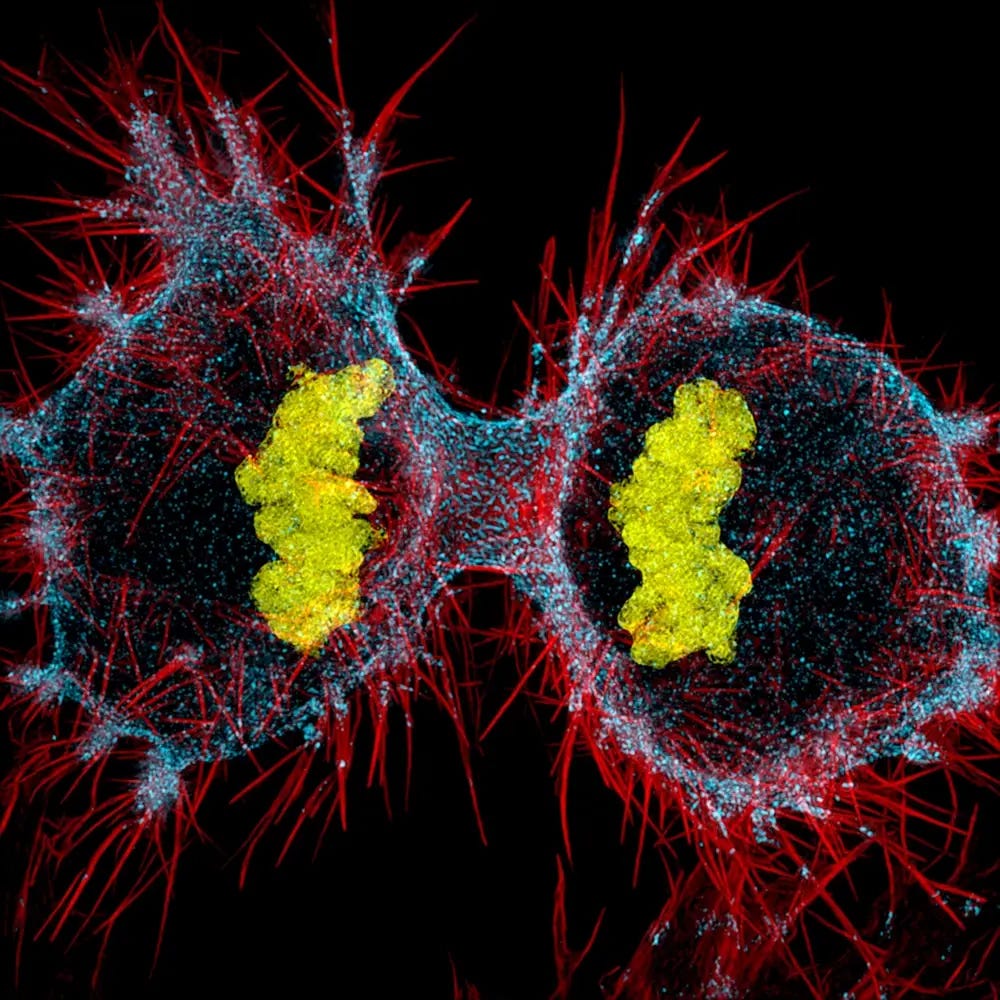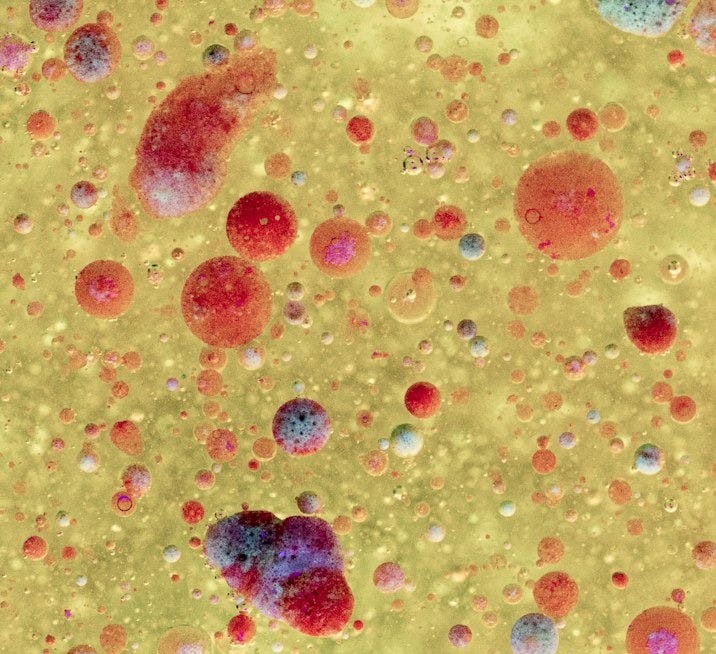There’s something breathtaking about the human body—not just in form or function, but in its quiet genius. I was recently interviewed for a podcast to be released in September - To Your Health by Esther Avant, and I started by sharing a bit about my early-on education. It reminded me of my early fascination with cellular biology. Not the dry textbook kind, but the awe-struck kind. The kind where you sit in a lecture hall and realize that one microscopic cell holds the blueprint of life.
One tiny, intricate unit is fully equipped with everything it needs: mitochondria to power it, a nucleus to lead it, ribosomes to build proteins like microscopic contractors, and membranes with selective permeability like a bouncer at the world’s most exclusive nightclub.
And let’s not even get started on cell division—actually, let’s. Because how wild is it that one cell, dividing and replicating, can eventually become a liver on one end and a brain on the other? Differentiation is the molecular equivalent of two kids raised in the same household choosing wildly different careers, but without anyone ever telling them what they were supposed to become. It’s biology that feels like magic—coded precision without a guiding hand, and yet somehow, guided perfectly.
That same brilliance lives inside us every day, quietly repairing what’s broken, fighting off invaders, adapting under pressure. Hormesis—a concept I’ve written about before and highly encourage you to read (here)—reminds us that stress in the right doses doesn’t destroy us; it makes us stronger. A little heat. A little cold. A challenge here. A hardship there. The goal isn’t always protection—it’s adaptation.
Think of your cells like small warriors: they take the hit, recover, adapt, they train harder so they’re ready for the next battle, and return stronger. Sound familiar? This doesn’t just apply to cells; it applies to the human spirit, too.
Viktor Frankl, who knew more about adversity than most of us ever will, said, “When we are no longer able to change a situation, we are challenged to change ourselves.” The body echoes that. It doesn’t always avoid damage—it prepares for it. The DNA may be damaged, but mechanisms activate to repair it. If the stress is too high, yes, the system falters. But by giving it the right environment, it fights for its life. Our life. And we get stronger. Think about that for a minute.
Yet this incredible machinery is vulnerable. Radiation, processed food, chronic inflammation, excessive sugar, environmental toxins—they don’t just annoy the body; they sabotage the code (genetically). Cellular biology, for all its elegance, is susceptible to disruption. Sugar, for instance, isn’t just an energy source—it’s a potential cellular saboteur when left unchecked. High levels in the bloodstream begin to leak into cells that aren’t meant to process it. That sugar can cause oxidative stress, glycation of proteins, and stiffening of cell walls. Over time, it damages the delicate linings of arteries and veins. On a more subtle level, it may even contribute to irregularities in cell signaling and division—opening the door to more significant health issues, like cancer. It’s not dramatic to say that too much sugar can slowly rewire your cellular efficiency, and not in your favor.
And think about the gut. Excess sugar can shift the microbial balance, feeding yeast and less beneficial bacteria. It creates a microbiome that’s not quite on your team. If your gut is your second brain, sugar is the coworker who takes credit for your ideas and leaves early. But even here, recovery is possible. Our bodies come equipped with macrophages, those loyal little janitors of our immune system. These cells devour the debris: dead cells, pathogens, and dysfunctional components. The process—called autophagy—is your body’s way of taking out the trash. It’s brilliant. And it’s activated by things like fasting, exercise, and rest. It turns out that the cleaner your system, the more efficiently your body can heal.
This brings us to the basics, or as I call them, the Core 4: exercise, nutrition, hydration, and sleep. And if you don’t know where to begin improving these areas, ; I’ve written separate articles for each to get you started. These four foundations are not trends. They’re the timeless biological strategies your body has always relied on, and always will. And they support cellular function. They encourage autophagy. They drive mitochondrial efficiency. They instigate the healing process. They help cells divide normally. They literally help your body know what to do next. And you don’t need a lab to begin—just a decision. You can read my articles on the Core 4 to go deeper, but suffice it to say, if your cells had a wish list, these four things would be at the top.
I want to leave you with a question: What would change in your life if you stopped thinking of health as something to manage and instead something to nurture? Managing sounds clinical, like balancing a spreadsheet. Nurturing sounds personal. Intentional. Human. What if every bite you ate, every hour you slept, every moment you moved your body wasn’t about weight loss or “health goals,” but about feeding your cells—about giving your body the tools it needs to keep you alive, alert, and resilient?
Perspective can change everything. When we zoom out, we see the complexity of the whole. But when we zoom in, we see something even more inspiring: billions of cells doing their job, no applause, no recognition—just quiet miracles, every day. It’s time to take them seriously and give them a raise.
Have a great weekend, health heroes!
Dr. Alice
A little more about Dr. Alice Burron and Strategic Action Health:
Dr. Burron is a co-founder of Strategic Action Health, dedicated to helping organizations help their employees make better health decisions. Come check us out here!
Catch us on Instagram: @the.health.navigator and @dr_burron
You can also connect on LinkedIn, if you want to be professional about it. 👓
Buy the book Health Shift here.
And if you’re not subscribed to Health Shift here on Substack, it’s time! This free newsletter is packed with valuable information and approaches to help you on your journey to better, faster healing.








